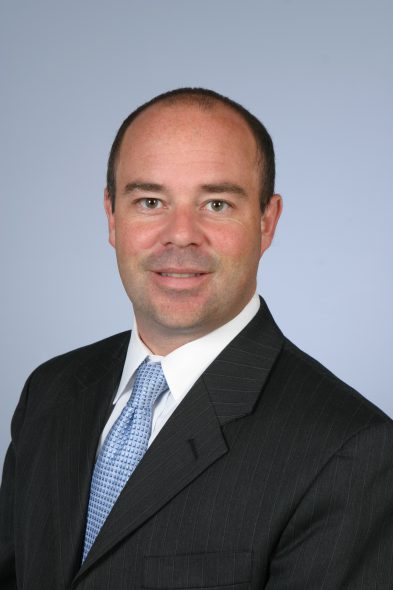New Transportation Secretary Faces Tough Choices
Evers choice, Craig Thompson, will be improvement on Walker era, but faces huge problems.
A Wisconsin Policy Forum panel discussion on transportation issues earlier this year featured Transportation Secretary Dave Ross and Craig Thompson, executive director of the Transportation Development Association.
Given the news that Thompson is Governor-elect Tony Evers’ choice to succeed Ross, Thompson’s presentation was particularly noteworthy. In a respectful, straightforward fashion, he presented factual information that contradicted the numbingly repetitive Ross narrative, i.e., “we don’t have a revenue problem, we have a spending problem.”
Thompson faces many challenges in his new position.
He will need to rebuild morale in an agency derided repeatedly by Ross and his deputy, Bob Seitz, during their two-year tenure. With the implicit support of Governor Scott Walker, Ross began his time as secretary by making the laughable claim that he needed to “restore public trust” in the agency. However, his actual track record of obfuscation is at odds with lofty claims of “transparency.” He willingly reinforced Gov. Walker’s divisive theme of pitting outstate transportation interests against those of Southeast Wisconsin when in fact they are not mutually exclusive.
Thompson’s other big challenge is to correct the Walker/Ross record of misleading and often disingenuous half-truths about the state of Wisconsin’s transportation finances and infrastructure. The Walker Administration’s bogus narrative has provided cover for, and reinforced, legislative opponents of increasing transportation revenue and their allies in the research and political advocacy world.
To make a credible case for increasing current transportation revenue, Thompson — and Evers — need to get the basic facts before legislators and the general public. Three examples illustrate, from a list that could be much longer.
First, it is an unarguable fact that decades-old freeways need to be rebuilt. There was a bipartisan consensus to that effect early in this century.
Gov.Walker and Dave Ross blew it up, capped off by their stunning request to rescind federal approval of a completed, $25 million East-West Freeway study. As a consequence, the nonpartisan Legislative Fiscal Bureau has estimated that the eventual cost of this unavoidable metro Milwaukee freeway work will grow by billions. Work that could have been accomplished by 2040 or sooner will now extend into the second half of the century without new revenue. In the intervening years, hundreds of millions will be spent on short-term repaving projects of the kind now snarling traffic on the I-894 loop to the west and south of Milwaukee. That money will come from the highway rehabilitation fund, money that otherwise would be available for out-state projects. It’s like painting a house you know will be torn down.
Second, every professional assessment of the state highway network concludes that the share of roads in poor condition will grow unless current funding is increased. This assessment was confirmed by an independent commission named by Walker early in his first term. Its work, rejected by Walker, is consistent with several other studies conducted in this century. It’s no accident that a majority of those surveyed in a recent Marquette Poll rated the state’s highways in poor condition.
Senator Duey Stroebel leads a faction of Republican legislators who dispute everything I have just written. He even has defended a borrowing spree that doubled the share of gas tax revenue needed to repay road bonds. He flatly disputes that documented transportation needs cannot be met within the current stream of revenue.
Governor-elect Evers and Craig Thompson have two options when it comes to Senator Stroebel and his allies in the research and public advocacy arena.
They can devote little or no time to refuting the Stroebel narrative. There is a strategic case to be made for that approach, namely, why legitimize an argument built on little evidence?
Alternatively, and here’s an option I normally decry, Evers/Thompson could convene a commission that would include representation from Senator Stroebel and his allies. Its mission, which could be accomplished in short order, would be to assess the consequences of maintaining current law revenues. What would that mean to the timetable and eventual cost of rebuilding freeways? What would be the cost of interim, short-term freeway repaving? Where would that money come from? Without new revenue, how much would the share of state highways in poor condition continue to grow?
Senator Stroebel surely would welcome having a seat at the table. He and his allies could directly address, in a very public forum, the claim that current law revenue is inadequate. They could address the kinds of questions I have outlined in the previous paragraph.
The Contrarian
-
Parents May ‘Break Up’ MPS
 Feb 8th, 2022 by George Mitchell
Feb 8th, 2022 by George Mitchell
-
School Choice Key Issue in Governor Race
 Sep 1st, 2021 by George Mitchell
Sep 1st, 2021 by George Mitchell
-
Jill Underly Flunks School Choice 101
 Feb 22nd, 2021 by George Mitchell
Feb 22nd, 2021 by George Mitchell
Transportation
-
Congestion Pricing Cuts Air Pollution in New York City
 Dec 14th, 2025 by Jeff Wood
Dec 14th, 2025 by Jeff Wood
-
FTA Tells Milwaukee to Crack Down on Fare Evasion — Even Where Fares Don’t Exist
 Dec 12th, 2025 by Graham Kilmer
Dec 12th, 2025 by Graham Kilmer
-
Will GOGO’s Bus Service Ever Get Going?
 Dec 9th, 2025 by Jeramey Jannene
Dec 9th, 2025 by Jeramey Jannene





















I am contrary to the East West freeway presentation above. The part I agree with is we could tear it down and rebuild it with rapid transit down the middle-rail preferred. We could save lots of long term road rebuilding cash that way.